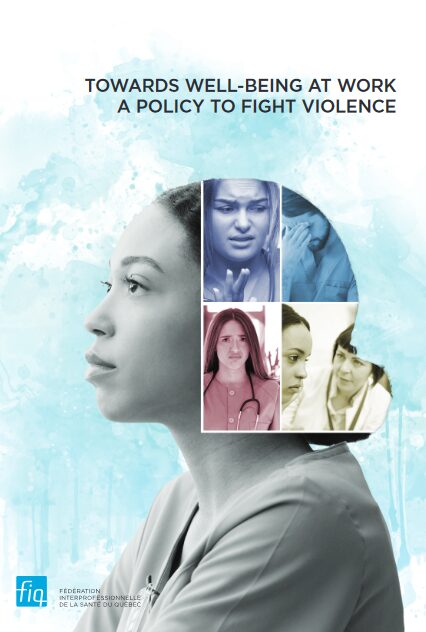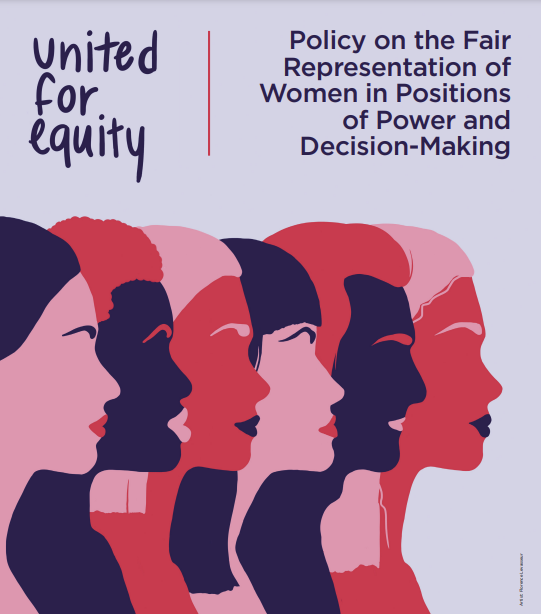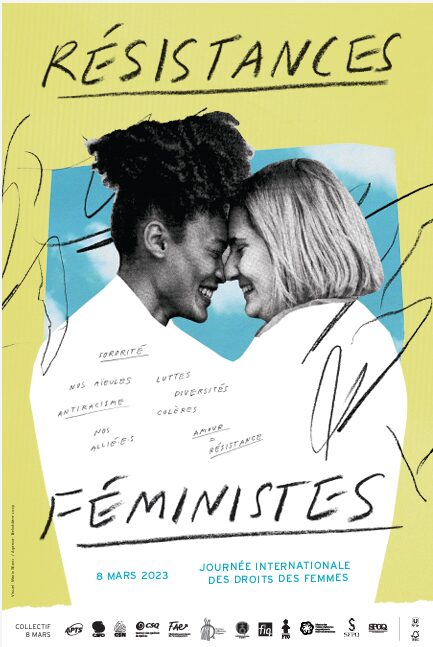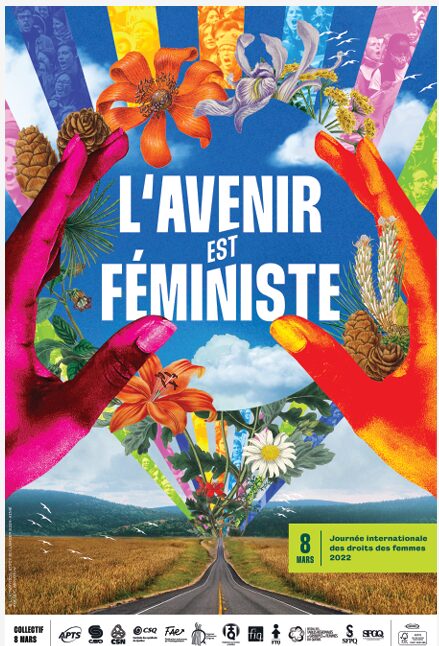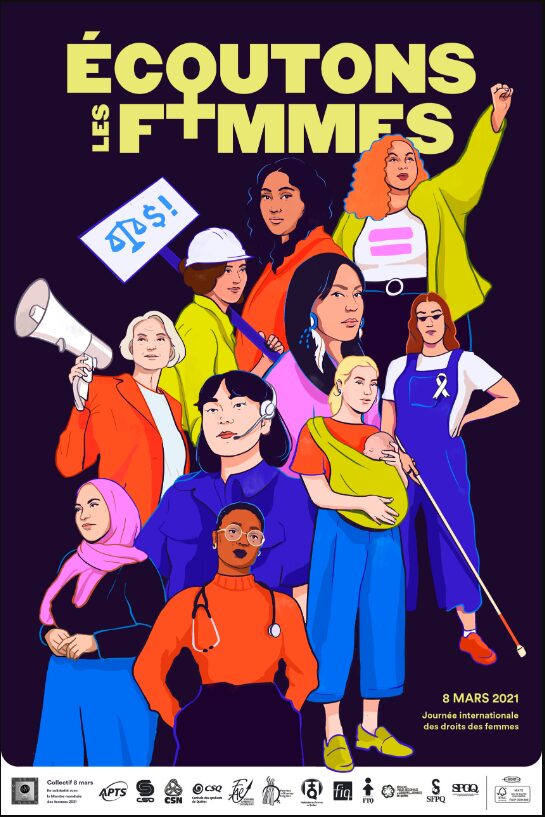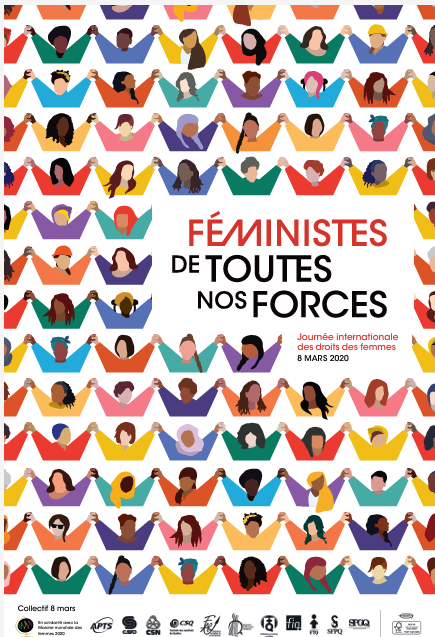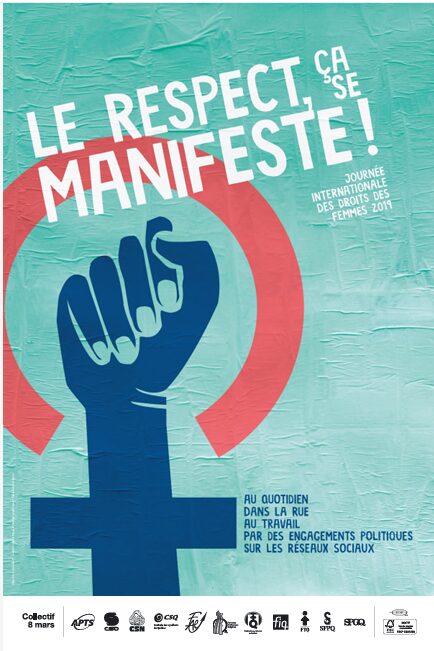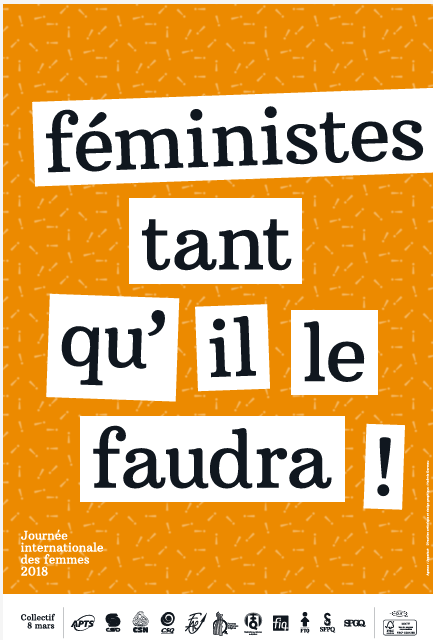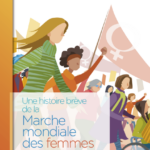Feminist organization
The FIQ is a feminist organization with a 90% female membership. In partnership with other feminist groups, it actively promotes and defends women’s rights and publicly denounces inequalities and harm. Workplace violence, family-work-study balance, the role of caregivers, pay equity, poverty and the role of women in decision-making are all core concerns at the FIQ.
Status of Women Committee
The Status of Women Committee ensures a strong feminist approach is used in the various decision-making bodies, helps organize the Women’s Network, and helps create local status of women committees in FIQ affiliated unions.
Women’s Network
The Women’s Network is a place for feminist thought and action to address issues that affect healthcare professionals as women.
Victim of violence?
The FIQ has a registry of organizations throughout Quebec that help women who have been victims of violence.
![7047_FIQ_CarrouselVM_ANG_1.0ED[1]](https://www.fiqsante.qc.ca/wp-content/uploads/2024/11/7047-fiq-carrouselvm-ang-10ed1.jpg)
Predominantly female jobs held by healthcare professionals will be evaluated based on the changes since 2015 and compared to equivalent predominantly male jobs in the public and parapublic sectors in Quebec. Salaries can then be adjusted accordingly.
A few events that occurred between 2015 and 2020 that could impact the value of a job:
- The creation of new jobs
- New collective agreements
- Amendments to labour laws
- Changes to the requirements of professional orders
- Changes to training requirements
Understanding equity
Causes, laws and process
The FIQ’s role
Collective battles and work underway
Fighting against violence
While violence in the health sector is widely known and documented, it is still largely under reported. Without denying the cumulative impact of other types of violence, in the health sector it stands out because it is predominantly female, which means women are the main targets. Organizational factors can also exacerbate types of violence, which is why it is critical we take action on all fronts:
- Female stereotypes
- Culture of silence
- Deficient organization of work
Implementing a truly non-violent work culture is a priority for the FIQ. Violence in the workplace is a complex matter, in particular since there is still a strong culture of silence around it. We hope to reverse this trend with our policy for fighting against violence.
Fair representation of women in positions of power and decision-making
The Federal Council’s delegation approved a policy for the FIQ that ensures fair representation of women in all places of power. The proposal reflected a need revealed by the Status of Women Sector’s analysis, which show that there was a decrease in involvement among women at several levels of power. At the 1988 convention, women made up 88% of the delegation, however, this percentage dropped to 75% at the 2014 convention, and then to 72% at the 2017 convention. This could lead to the under-representation of women in an organization with a 90% female workforce.
The FIQ will continue to:
- promote women’s rights;
- take a public stand on behalf of those who are more vulnerable and cannot speak up;
- be a leading organization on the status of women in Quebec society and, due to its ties of solidarity, strive to achieve gender equality throughout the world.
We need to ensure that healthcare professionals participate at every level of decision-making power and influence.
Created in 1977, the Intersyndicale des femmes represents nearly 300,000 unionized workers in the public and parapublic sectors, as well as the private sector. It is composed of status of women representatives from seven labour organizations: the Alliance du personnel professionnel et technique de la santé et des services sociaux (APTS), the Centrale des syndicats démocratiques (CSD), the Centrale des syndicats du Québec (CSQ), the Fédération autonome de l’enseignement (FAE), the Fédération interprofessionnelle de la santé du Québec – FIQ, the Syndicat de la fonction publique et parapublique du Québec (SFPQ) and the Syndicat de professionnelles et professionnels du gouvernement du Québec (SPGQ).

